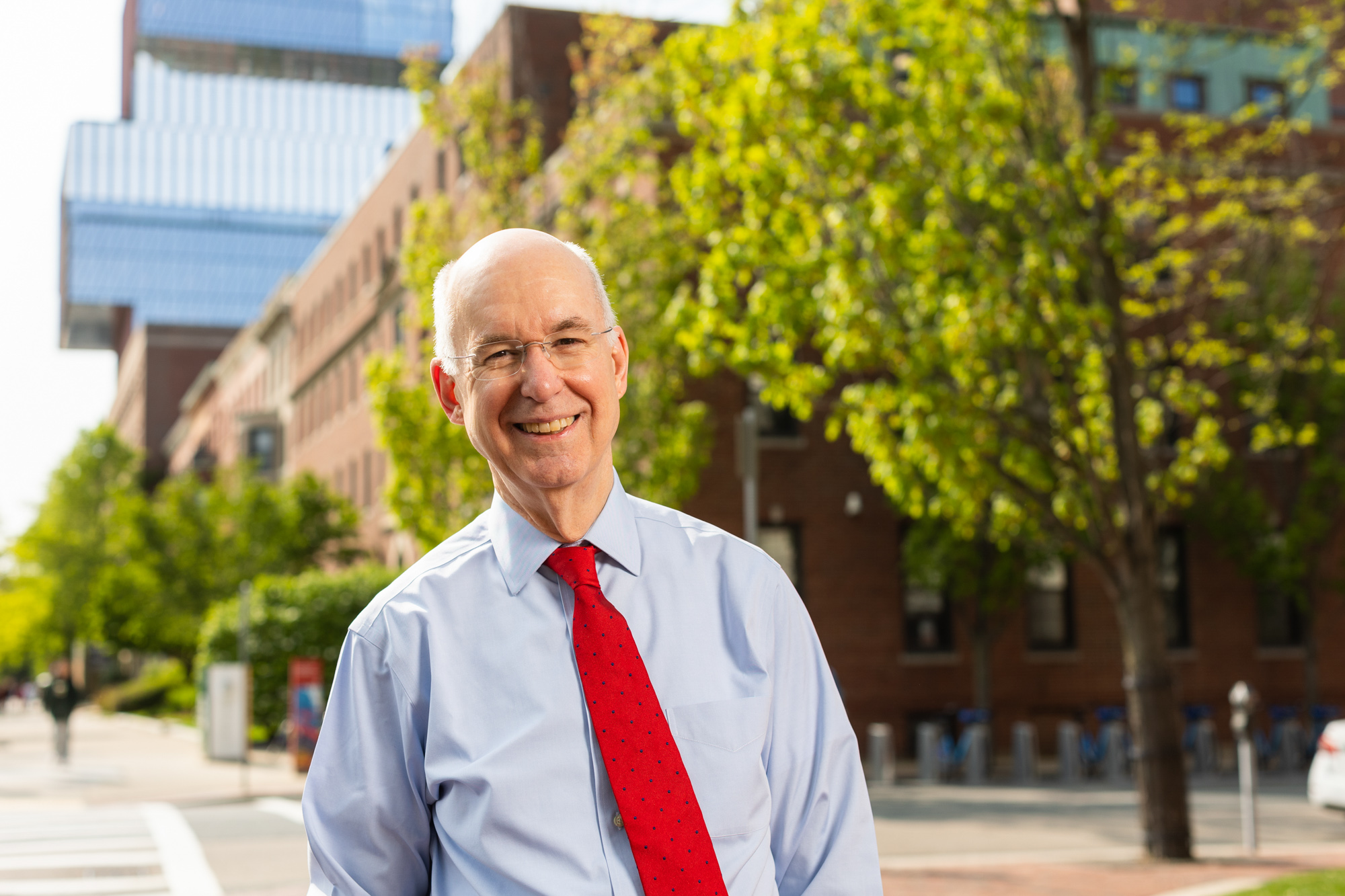Kenneth W. Freeman will end his time as Boston University’s interim president on June 30. Freeman led BU during the 2023-2024 school year while the University’s Board of Trustees searched for a permanent replacement following former President Robert A. Brown’s resignation in July 2023.
Freeman was appointed as interim president in May 2023 by BU’s Board of Trustees.

Freeman wrote in an email that as interim president, he strove toward “continuing the positive momentum from Dr. Brown’s presidency.”
According to Freeman, this was achieved by executing the 2030 Strategic Plan, a vision statement he helped create during the 2020-2021 school year with five strategic priorities including high quality academics, research, diversity, community and global impact.
Freeman also focused on creating a “comprehensive response” to the crisis in the Middle East. This included learning and engagement opportunities, establishing working groups to address issues presented to Jewish, Muslim and Arab BU community members and creating a Civility & Campus Discourse website, according to a letter Freeman wrote to the BU Community on Jan. 18.
Freeman’s “strong record” and “good relationship” with the Board of Trustees and the University’s leaders led to his appointment, BU Spokesperson Colin Riley said.
“I believe the Board of Trustees certainly recognized his intelligence, his talent, his thoughtful approach and they thought he would be a very good interim president,” Riley said.
Freeman first came to BU in 2010 when he became the Dean of the Questrom School of Business. Since then, he has served as interim vice president for human resources and led BU Virtual, a program for BU to provide online graduate education.
Freeman, a first-generation college student, wrote that college changed his life and his “loyalty to BU” was the main factor in his decision to accept the role of interim president . He also wrote that his experience working at the University has been “wonderful.”
“My wife of 52 years says that she has never seen me happier going to work than during my time at BU,” Freeman wrote.
Freeman stepped into his role during a tumultuous time for the University amidst protests and workers’ strikes, describing his year as “challenging and rewarding” during a time of “stress and upheaval in higher education.” Dean of the College of General Studies Natalie McKnight wrote in an email that Freeman’s time at the University was the most “contentious time” she’s seen in the 34 years she has worked at BU.
McKnight co-chaired the BU Remote Work Policy Committee with Freeman, a policy BU continues to follow today. The two worked together for months, and McKnight described Freeman as “calm, wise, judicious and accessible.”
“Ken Freeman is one of the most skilled leaders I have ever had the privilege to work with,” McKnight wrote in an email. “I am grateful to him for his leadership at BU.”
Dean of the College of Communication Mariette DiChristina said she admired Freeman’s leadership while the University searched for a President and a Provost, his response to the Israel-Gaza conflict and his support for the entire University.
“I’m really grateful to have had his leadership during this time, partly because he’s been [a] wonderful, trusted leader at the helm,” DiChristina said. “He’s helping us figure out how we are going to next transition for our new leadership.”
Dean of the College of Fine Arts Harvey Young worked extensively with Freeman during his tenure as Dean of Questrom and also as interim president. Young said that Freeman’s involvement and accessibility during his time as interim president stood out to him.
“He’s made a very big university that can at times feel impersonal, feel much smaller, more cohesive,” Young said.
According to Young, Freeman’s assistance during student move-in and school events attendance with students exemplified his thoughtfulness. Young added Freeman’s personal connection to the arts has benefited both the CFA and the entire University.
“You want that skill set in a president,” Young said. “You want a person who can appreciate the many dimensions of a university, so it’s not just one side or the other.”
Although Freeman has not yet announced the next step for his career, he wrote that he plans to keep working and is “considering different possibilities.” He does not plan on returning to any previous roles he has worked in at BU.
Freeman will remain in office until Melissa L. Gilliam assumes the presidency on July 1. He wrote that he looks forward to BU’s continued advancement under her leadership.
“I hope I will be viewed as a person that genuinely cares about Boston University and tried his best to advance BU during a time of significant challenges,” Freeman wrote.



















































































































